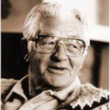Nobody's fool
Description
More Details
9780307933454
9780307809926
Excerpt
Similar Series From Novelist
Similar Titles From NoveList
Similar Authors From NoveList
Published Reviews
Booklist Review
Russo (The Risk Pool [1989]) has created a masterpiece with this offbeat tale of life in North Bath, New York. Just north of Albany, North Bath is a town that is not merely unlucky, but is without luck, and Russo's main character here is the unluckiest one in town. Long divorced, and, at 60, living in a rented flat, he survives doing piecemeal construction work. He is assisted in his "Jack-Off, All Trades" work by his buddy Rub, as dull-witted as Sully is unlucky, and in his life by a host of characters, including his former eighth-grade teacher, now his landlady; his philandering construction boss; his one-legged, drunk, Jewish/Buddhist lawyer; and his son and grandson. Sully survives on his detached, wisecracking humor, and his life, while in utter disarray, is, as he realizes, fun. And as he struggles to resolve things with his dead father and rebuild his relationship with his son and grandson, Sully discovers that he might just stop his "stupid streak" once and for all. High praise for this wonderful, quirky tale of small-town life. ~--David Cline
Publisher's Weekly Review
Set in the economically desperate ex-resort town of North Bath, N.Y., Russo's novel displays his characteristic verbal panache and biting wit. (May) (c) Copyright PWxyz, LLC. All rights reserved
Library Journal Review
Sixty-year-old Sully is ``nobody's fool,'' except maybe his own. Out of work (undeclared-income work is what he does, when he can), down to his last few bucks, hampered by an arthritic broken knee, Sully is worried that he's started on a run of bad luck. And he has. The banker son of his octogenarian landlady wants him evicted; Sully's estranged son comes home for Thanksgiving only to have his wife split; Sully's own high-strung ex-wife seems headed for a nervous breakdown; and his longtime lover is blaming him for her daughter's winding up in the hospital with a busted jaw. But Sully's biggest problem is the memory of his own abusive father, a ghost who haunts his every day. As he demonstrated in Mohawk (Random, 1986) and The Risk Pool (Random, 1989), Russo knows the small towns of upstate New York and the people who inhabit them; he writes with humor and compassion. A delight. Previewed in Prepub Alert, LJ 2/1/93.-- Charles Michaud, Turner Free Lib., Randolph, Mass. (c) Copyright 2010. Library Journals LLC, a wholly owned subsidiary of Media Source, Inc. No redistribution permitted.
Kirkus Book Review
Set in upstate New York like its predecessors (Mohawk, 1986; The Risk Pool, 1988), Russo's third is a slice of small-town life: thick slice, big cast, much bustle, but no storyline, no climax, no epiphanies. It is Donald Sullivan, known as Sully, who is ``nobody's fool'' (both meanings apply). The 60-year-old handyman, who has lived all his life in the Adirondacks town of New Bath, has relied on his ability to roll with the punches to see him through a harsh childhood (dominated by his brutal father, Big Jim), a brief marriage to the demanding Vera, and other adversities, some the result of his own ``stupid streaks.'' During the midwinter weeks in 1984 that are the novel's span, the fun-loving but self-destructive Sully's latest stupid streak will end his long relationship with his mistress Ruth, a married woman, and jeopardize his tenancy (Sully lives in the home of his retired eighth-grade teacher, Miss Beryl, a spry, good-hearted octogenarian); he will also deck a cop and spend time in jail. More positively, he will become partially reconciled with his son Peter, whose own marriage has just fallen apart. As we follow Sully from his various workplaces to his hangouts (Hattie's diner, the bar, the OTB) and listen to the endless joshing between him and his sidekick Rub, a loyal half-wit, his equally loyal lawyer Wirf, and his tomcatting boss Carl Roebuck, we realize that Russo's novel is about the compensations of male camaraderie for the unsuccessful husband, father, and lover. Russo does small-town life as well as anyone, but his latest is too much of a good thing. He leaves the impression of a writer who has reached a plateau but is unwilling or unable to move on.
Library Journal Reviews
Sixty-year-old Sully is ``nobody's fool,'' except maybe his own. Out of work (undeclared-income work is what he does, when he can), down to his last few bucks, hampered by an arthritic broken knee, Sully is worried that he's started on a run of bad luck. And he has. The banker son of his octogenarian landlady wants him evicted; Sully's estranged son comes home for Thanksgiving only to have his wife split; Sully's own high-strung ex-wife seems headed for a nervous breakdown; and his longtime lover is blaming him for her daughter's winding up in the hospital with a busted jaw. But Sully's biggest problem is the memory of his own abusive father, a ghost who haunts his every day. As he demonstrated in Mohawk (Random, 1986) and The Risk Pool (Random, 1989), Russo knows the small towns of upstate New York and the people who inhabit them; he writes with humor and compassion. A delight. Previewed in Prepub Alert, LJ 2/1/93.-- Charles Michaud, Turner Free Lib., Randolph, Mass. Copyright 1993 Cahners Business Information.
Publishers Weekly Reviews
It's about time that people looking for a good read discovered the novels of Richard Russo. It's not just that he writes with panache, his verbal dexterity a mixture of biting wit and potent insight. He also endows his subjects-- blue-collar people living in economically desperate communities--with dignity, finding in their humble circumstances the essential questions of existence. Yet here as in his previous novels, Mohawk and The Risk Pool , the events in his protagonist's life are the material of rollicking high comedy. A succession of contretemps conspire to keep Donald ``Sully'' Sullivan mired in a morass of bad luck, compounded at every turn by his own stubborn, self-destructive streak. Financial solvency has always eluded Sully, an unemployed construction worker. At 60, he is suffering from a badly mangled, constantly aching knee, the consequence of a typically foolish accident; his pickup truck is moribund; his long-time mistress is restive; his ex-wife is on the verge of a nervous breakdown and his son Peter has come home for Thanksgiving with news that his marriage is disintegrating and that he has lost his job. Sully's sagging fortunes are mirrored by his community's decline. North Bath, N.Y., is a town prosperity has shunned: its signature hot springs mysteriously dried up years ago and a projected Ultimate Escape theme park is doomed never to materialize. Sully's financial problems might be solved by the sale of his dead father's dilapidated house, but Sully's gnawing hatred of Big Jim, a viciously mean, hypocritical bully, renders him incapable of profiting from his father's estate. His emotional distance from Big Jim left Sully incapable of forging a bond with Peter, or indeed, of establishing any relationship that he cannot address with a wisecrack or a teasing quip. In fact (and somewhat improbably), all the characters in the novel have the gift of a silver tongue: the dialogue often consists of verbal sparring, insults exhanged in comradely fashion. The narrative brims with memorable portraits: Sully's mentally dim and odoriferous sidekick, Rub Squeers; his feisty 80-year-old landlady and former grade-school teacher, Miss Beryl; his ex-wife, a woman animated by moral outrage and self pity; his mistress's stiletto-tongued daughter and her waif-like, wall-eyed child; his one-legged alcoholic lawyer--even his thoroughly wicked grandson, the pint-sized reincarnation of Big Jim. In delivering these personalities with a Dickensian skill, Russo again proves himself a shrewd observer of human nature, whose universal failings he scrutinizes with a comic eye and a compassionate heart. 50,000 first printing; major ad/promo; author tour. (June) Copyright 1993 Cahners Business Information.
Publishers Weekly Reviews
Set in the economically desperate ex-resort town of North Bath, N.Y., Russo's novel displays his characteristic verbal panache and biting wit. (May) Copyright 1994 Cahners Business Information.





































